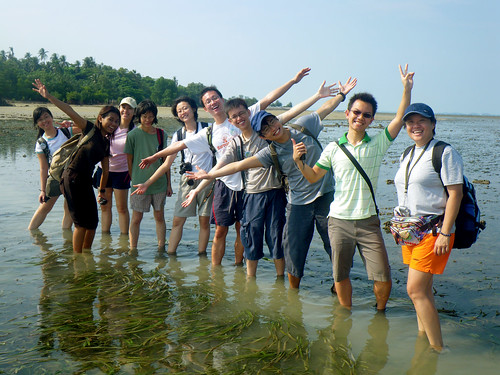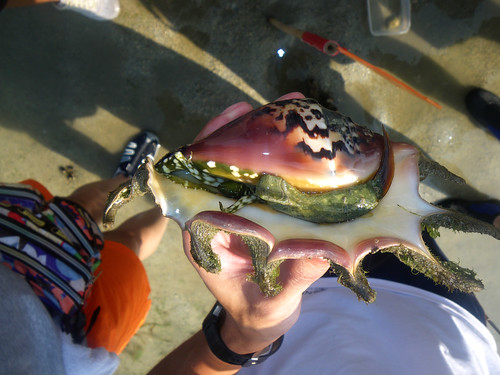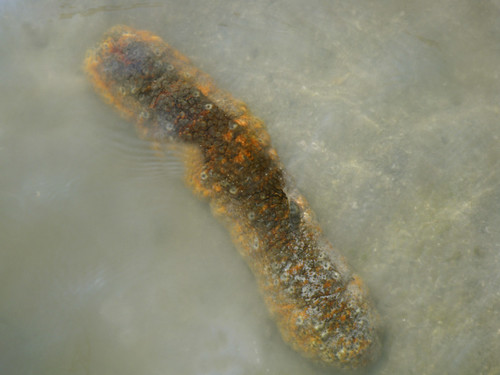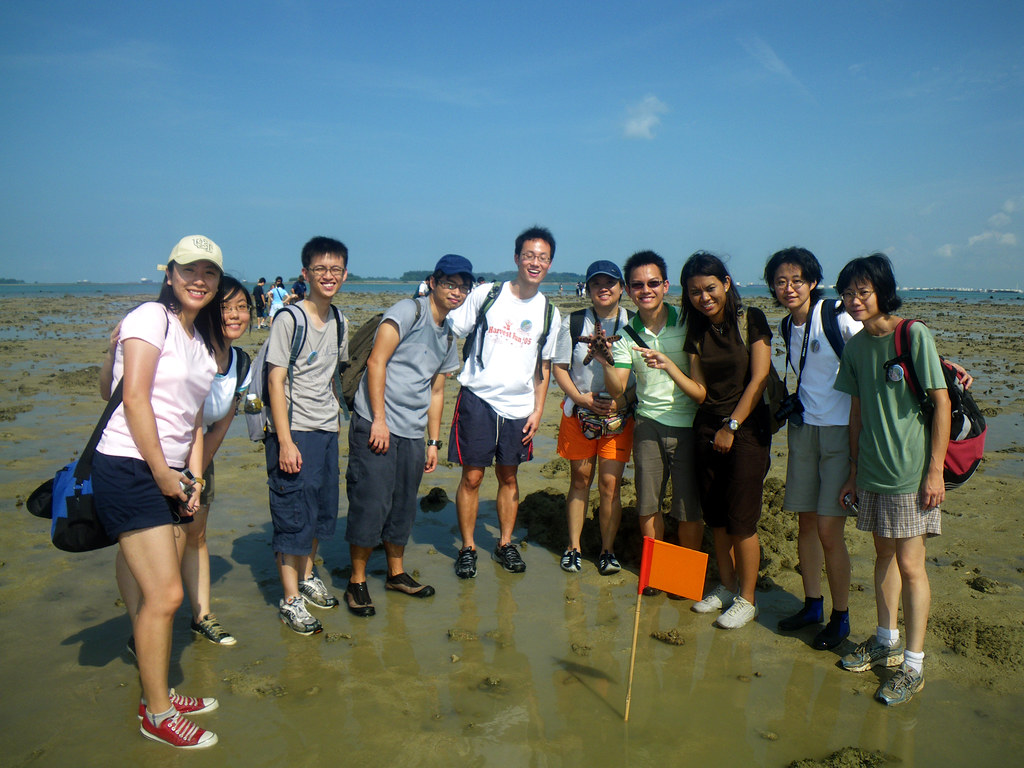
It was really a good start with LK spotting about three dolphins swimming very near Semakau's jetty. Unfortunately, I did not bring my x12 zoom camera but still, I am glad that the participants were able to see this amazing scene. This really shows what amazing life we still have in our waters!

Here is my team mangrove with my friend Mervyn in the green shirt also coming to join as participant.

My group had several eagle eyed participants and Celina managed to find a spider conch (Lambis lambis) crawling on the seagrass using its sickle shaped and razor edge operulum showed in the picture. Like all true conches, they have a pair of long eye stalks that can peep out of their shells to scan the surroundings.

Residing on this gigantic anemone (Stichodactyla gigantea) was a anemone shrimp (Periclimenes brevicarpalis) at the centre of this picture. Besides gaining considerable protection from the stinging tentacles of its host, it also have a partially translucent body to break its body outline, making it difficult to spot.

We saw several upside down jellyfishes (Cassiopea sp.) in the tidal pools. As its name indicates, it normally lie in an upside-down manner to allow its symbiotic algae in its tentacles to photosynthesize.

This is the top view of a seahorse (Hippocampus comes). They cannot swim fast thus rely a lot on camouflage and simply staying still by hooking themselves to seagrasses or other structures using their prehensile tail.

The hunter seekers also found a tiny little frog fish. This adorable creature has a pair of frontal fins positioned in a way to allow to walk. Notice that there is an extension from the tip of the head. This is actually a bait to lure fishes towards it.

A huge ocellated sea cucumber (Stichopus ocellatus) named because of their eye spots on its body which to me looked more like pimples with white pus. eww...

Last but not least was this star, which happens to be a baby cushion star (Culcita novaeguineae). When they mature to become an adult, they will look very much inflated like a pillow thus earning its common name.

Last but not least was our traditional group photo with the iconic knobbly seastar (Protoreaster nodosus). Another nice day with great discoveries and an enthusiastic gang of participants!

No comments:
Post a Comment